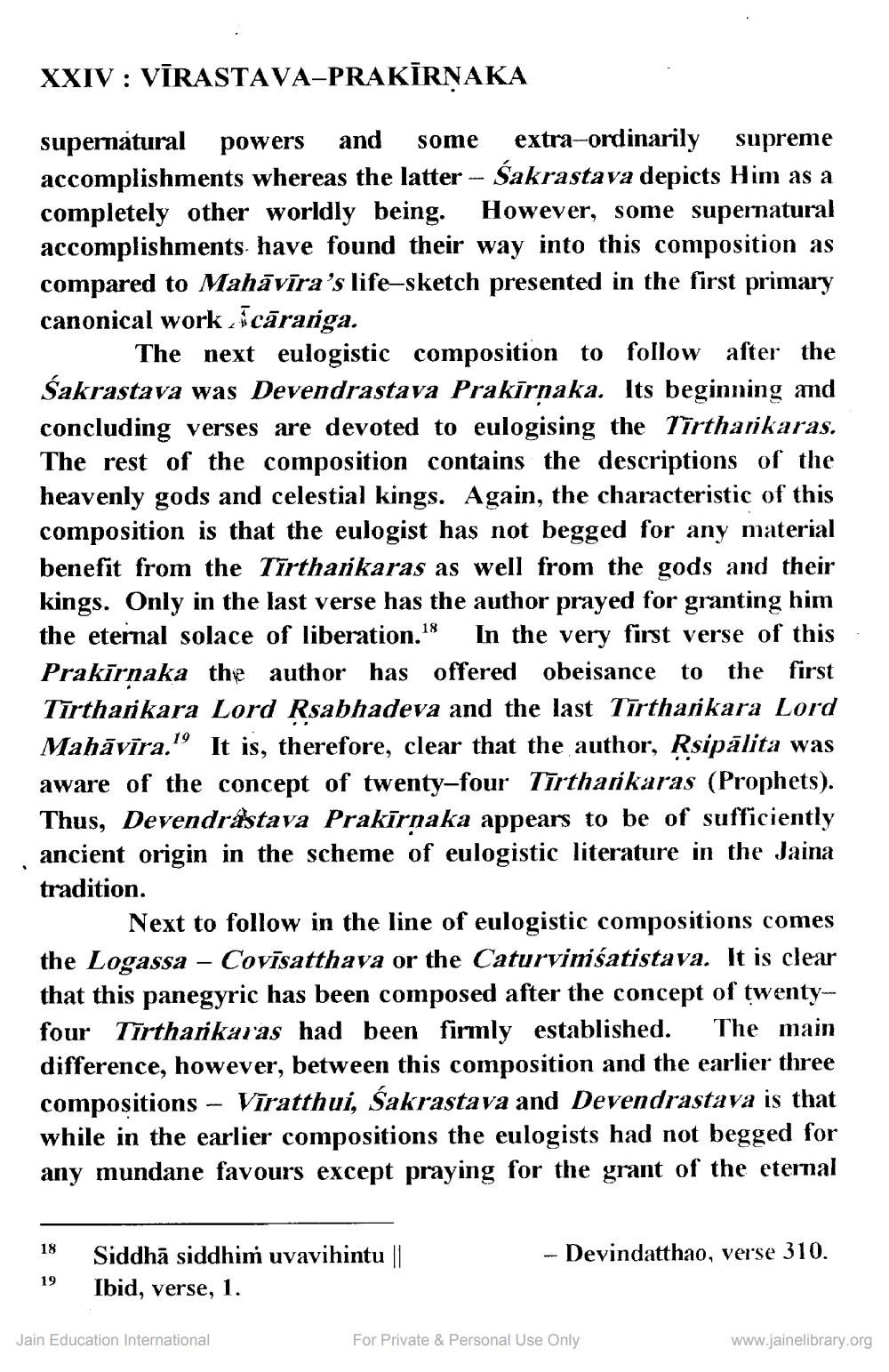________________
XXIV : VĪRASTAVA-PRAKĪRNAKA
supernatural powers and some extra-ordinarily supreme accomplishments whereas the latter - Śakrastava depicts Him as a completely other worldly being. However, some supernatural accomplishments have found their way into this composition as compared to Mahāvīra's life-sketch presented in the first primary canonical work „Icāranga.
The next eulogistic composition to follow after the Śakrastava was Devendrastava Prakīrṇaka. Its beginning and concluding verses are devoted to eulogising the Tīrtharikaras. The rest of the composition contains the descriptions of the heavenly gods and celestial kings. Again, the characteristic of this composition is that the eulogist has not begged for any material benefit from the Tīrtharkaras as well from the gods and their kings. Only in the last verse has the author prayed for granting him the eternal solace of liberation. In the very first verse of this Prakīrnaka the author has offered obeisance to the first Tīrtharkara Lord Rsabhadeva and the last Tīrtharikara Lord Mahāvīra." It is, therefore, clear that the author, Rsipalita was aware of the concept of twenty-four Tīrtharikaras (Prophets). Thus, Devendrástava Prakīrnaka appears to be of sufficiently ancient origin in the scheme of eulogistic literature in the Jaina tradition.
Next to follow in the line of eulogistic compositions comes the Logassa – Covīsatthava or the Caturvimisatistava. It is clear that this panegyric has been composed after the concept of twentyfour Tīrtharikaras had been firmly established. The main difference, however, between this composition and the earlier three compositions - Vīratthui, Sakrastava and Devendrastava is that while in the earlier compositions the eulogists had not begged for any mundane favours except praying for the grant of the eternal
C
- Devindatthao, verse 310.
19
Siddhā siddhim uvavihintu || Ibid, verse, 1.
Jain Education International
For Private & Personal Use Only
www.jainelibrary.org




